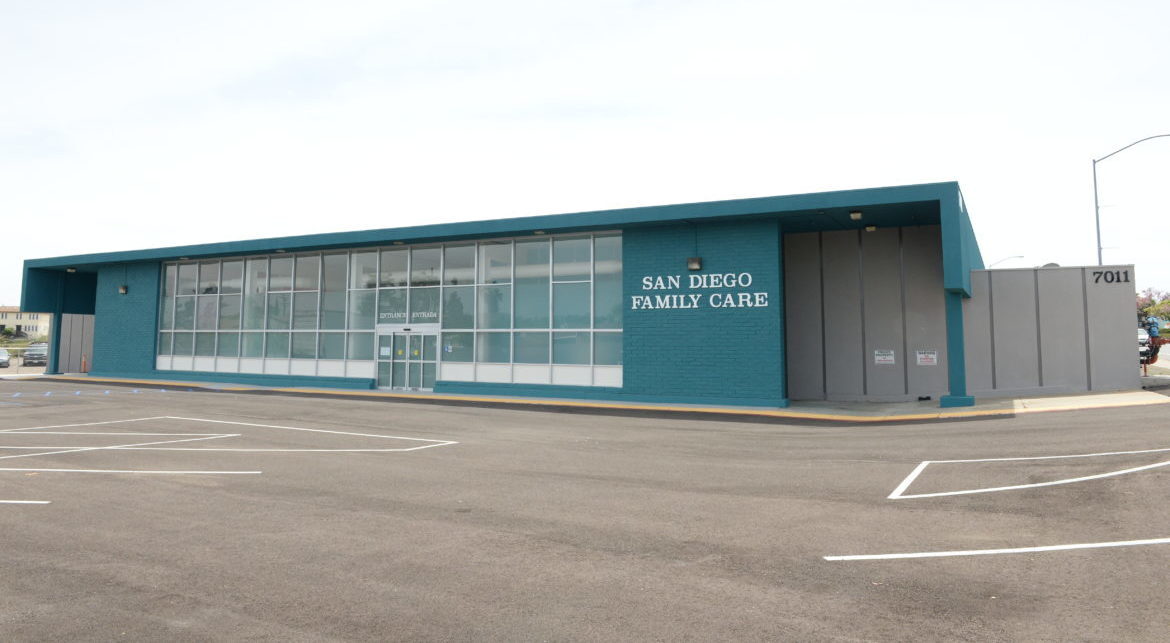1420 Kettner Blvd,
Suite 700
San Diego, CA 92101
(619) 860-2100

Every day is an adventure for Roberta Feinberg, the CEO of San Diego Family Care, whose eight health centers in San Diego County handled over 125,000 visits last year.
San Diego Family Care is a private, non-profit family clinic with a mission to provide culturally competent, affordable, fiscally responsible medical, dental, and mental health care to anyone who walks through the door, regardless of their ability to pay or their immigration status.
The work just got a little bit easier for Feinberg and her team of healthcare professionals with the announcement that San Diego Family Care was awarded a two-year $500,000 grant as part of the Conrad Prebys Foundation’s SHARE Initiative. The initiative provides unrestricted grants to health clinics that effectively serve communities needing improved health services – especially Indigenous, immigrant, and border residents. The initiative aims to ensure that excellent, culturally proficient healthcare is accessible to and in underserved communities. Grant recipients can use the funding in whatever way they think will be most effective for their organizations and the communities they serve.
Indeed, the need for quality care has never been higher. Feinberg’s clients are experiencing a myriad of public health issues, especially mental health and dental problems, among others. And no patient is turned away unless the clinic reaches capacity, in which case they are forced to refer patients elsewhere.
“If we can see them, we see them,” says Feinberg, who nevertheless must grapple with a staffing shortage across the organization as well as rapidly rising healthcare costs.
Compounding the challenge is that her patients come from all over the world and have a widely varying understanding of what a medical care system is. Many are unfamiliar with making appointments, are skeptical of western medications, or have never seen a pill before.
In that context, cultural sensitivity is essential, and Feinberg and her team are committed to understanding how to best communicate with clients to make them feel safe and cared for.
“We do a lot of work to learn why they came and what they’re used to in their country,” she says. Her staff speak eight languages, including Thai, Vietnamese, Lao, and Russian, and she continues to recruit staff who speak multiple languages.
San Diego Family Care is a Federally Qualified Health Center – a designation that allows her to tap government funds – but the additional funding only covers ten percent of her $32 million annual budget and requires extremely specific procedures to qualify for the money. Feinberg strains as she lifts a binder that appears to be about six inches thick. “This is the compliance manual. It has nineteen chapters,” she says.
She explains how much time and effort it requires to meet the terms of her federal funding and explains her shock in finding out that her SHARE Initiative grant came without any requirements. “It’s like the money fell from the sky,” she says. “When we got this grant, we were like, ‘you gotta be kidding’! We can do anything we want with it?”
She plans to use the funds to purchase new medical equipment, and IT equipment, and to expand their hours of operation. That said, she points out that she would dearly love to add clinics, which would require partnerships with the San Diego real estate community to help her find properties to purchase or lease.
In the face of all the challenges, Feinberg hardly seems like the overburdened administrator one might expect. “I am passionately in love with this job,” she says. “We help people live. We even provide cancer treatment and help our patients participate in clinical trials, which low-income people usually don’t have access to.”
Looking ahead, San Diego Family Care will continue to do its best to support its staff and patients. They will need to keep up with rising salaries and the rising cost of new technology, including telehealth and cybersecurity. They will continue to provide the kind of preventative care and primary services that reduce the strain on first responders and emergency rooms. And San Diego Family Care will always be a place where people can walk through the door and receive the care they need, no matter who they are or where they came from.
“It's changed my life to see how alike people are, not how different they are,” says Feinberg.” Everyone loves their family. Everybody wants a better job, and everybody wants freedom. And there are so many commonalities between the different cultures. There are many more common things than there are differences.”

